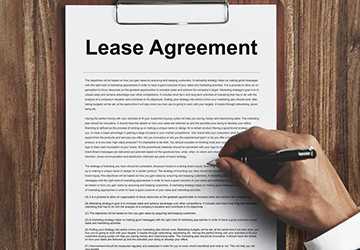Although commercial real estate investing can be financially rewarding, it takes work.
After all, bad deals in the private or public sector can cost you a lot of money and serve as sources of long-term headaches. It's sensible for you to stay vigilant and recognize the warning signs before settling on an investment.
These red flags allow your investment decisions to start on the right note and, in the process, safeguard your hard-earned money through knowledge of these signals.

Knowing what to look out for will always keep you from committing those costly mistakes that, in effect, will give you a more secure financial future.
This blog post will cover seven of the most important red flags for a bad commercial real estate deal. This information will empower you to confidently step out into the marketplace and keep you away from potential pitfalls.
Keep reading to learn ways to protect your investments and make better choices in commercial real estate.
Pinpointing red flags early on in commercial real estate is what defines success from failure in investment.
A lousy deal puts one into much financial and legal hardship, even affecting one's reputation.
Recognized early, these red flags will help you avoid any affair likely to turn sour and reduce your losses.
Spending time to investigate and evaluate opportunities in commercial real estate will always pay you off. It helps you make prudent decisions based on well-determined facts instead of emotions or gut feelings.
Being proactive in knowing the warning signs is much easier than dealing with the consequences of a bad deal later.
Only then can you invest confidently, knowing you did your due diligence and minimize potential risks.
With this, you will be in a better position to develop an enormous and safe commercial real estate portfolio by mastering the art of red flag recognition—an essential ability for long-term success and peaceful coexistence in the competitive world of real estate investment.
Now that you know the importance of identifying warning signs for commercial real estate deals, let's examine seven critical red flags where caution should be exercised.
By recognizing these warning signs, you can make a more informed decision and save yourself from pitfalls.
A commercial property that seems too good to be true most likely isn't. Always compare the excellent deal with what the market says about similar features in a particular area.
Be careful if the property's price exceeds the market value.
● Research market prices of related properties.
● Be wary of those properties with far too low prices than the regular pricing in the market.
● Seek advice from real estate professionals to be knowledgeable in terms of pricing.
One of the most significant red flags is the need to complete or add documentation to a property.
Be sure you access necessary documents such as title deeds, zoning permits, and inspection reports. Incomplete documents usually result in legal problems and unforeseen costs in the future.
● Ensure that all necessary documents are present and authentic.
● Check with the owners whether the property is appropriately zoned.
● Review the previous inspection reports for problems that may emerge.
High property vacancy rates show a lack of demand or structural support in the property or its location.
This calls for an investigation into why there are vacancies. Find the elements in the marketplace that measure the demand for commercial space within the local market.
● Check out the vacancy rates around town.
● Find out why the former tenants vacated.
● Analyze the local market demand for commercial spaces.
This is the most critical factor for any investment in commercial real estate. A correct location can maintain the value of the property and its desirability for tenants.
Consider the amenities in the vicinity, the state of security in the area, and the location's proximity to public transportation and major roads.
● Evaluate neighbourhood safety and amenities.
● Look for proximity to public transport and main roads.
● Evaluate the economic environment of the local area.
If the lease terms are ambiguous or overly complex, they can lead to disputes and monetary loss later.

The agreement should be easy to understand and relatively comfortable for both parties. Make sure to avoid leases with hidden charges or obscure clauses. If you have any doubts, don't hesitate to seek legal advice to protect your interests.
● The terms of the lease should be clear and understandable.
● Stay away from any hidden costs or the presence of unclear clauses in the leases.
● If needed, seek legal advice.
Financial history can be a good source of potential risks that a property may bear.
Foreclosures and frequent ownership changes are major red flags that signal previous financial issues. Look into economic history and analyze stability in prior ownership.
● Research the financial history of the property.
● Seek out previous foreclosures or bankruptcies.
● Determine previous ownership stability.
Structural problems might be entwined with costly repair needs and inner issues.
Detailedly scour the property for any structural damage or decline. Account for the expenses that may come with deciding to invest.
● Conduct a thorough inspection of the property.
● Inspect the part for any structural damages or deteriorations.
● Repair costs can be estimated and accommodated as part of an investment decision.
Now that you have encountered the seven warning signs, commercial real estate investing offers a great return on your investment.
Still, it also keeps you cautious enough with the warning signs that can help you avoid costly and unnecessary mistakes.
So act now to learn how to identify these red flags, protect your investments, and avoid losing everything.
Don't let FOMO make you lose your business acumen. Take a moment to analyze each opportunity, and if necessary, seek professional advice from industry professionals.
The due diligence that starts today will lay the foundation for a safe and secure future in commercial real estate investment.
Q. How do you do due diligence on the genuineness of the property documents?
Ans. Verify the property papers' authenticity with a real estate lawyer or a title company. Tell them you want to verify the authenticity of the title deeds, zoning permits, and other essential documents.
Q. If I suspect a property to have underlying issues, what can I do to ascertain this?
Ans. If you suspect the property has latent defects, a thorough inspection should be carried out with the help of qualified professionals in engineering or property inspection. These professionals would point out areas of possible concern and make appropriate recommendations for correcting these concerns.
Q. How Can I Better Negotiate Lease Terms On a Commercial Property?
Ans. To get better terms for a lease, study the existing market rates of such properties and be prepared to negotiate your needs with an output to the landlord. Consider the services of a real estate attorney to review the lease and make some amicable adjustments favourable to yourself.